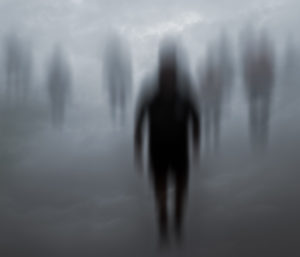
Life after death can be a difficult concept for many people to understand. Death is a part of life. It might be the last part, but it plays a very big role in the way human beings live. With the knowledge of death, people are able to live their lives to the fullest, knowing they are given a precious amount of time on this planet. Still, death has always been a point of fear for the human race. This is one of the main reasons religion came into being. Rationalizing death through ritual has shaped widespread beliefs over time.
One of the more interesting concepts people have debated over millennia is the afterlife. For some, life after death is a given. Many believe in heaven or a similar destination where the soul arrives after departing its human shell. While there is no hard evidence one way or the other, there have been many scientists, theologians and academics who have dedicated their lives to understanding the mysteries of what happens to a person after he or she dies. Here are some of the more interesting bits of info.
Hallucinations and Illusions
People who have close encounters with death are usually the individuals who talk about the afterlife with the most conviction. This is because a huge number of people who have near-death experiences encounter the same situation. For many, this means “meeting” with friends and relatives who have already died. For a long while, scientists rationalized that the dying mind concocts all kinds of hallucinations when it believes it is heading toward death. Still, statistics make this a bit hard to argue.
Some academics began looking over cases where people claimed to meet deceased associates in the afterlife and noticed some patterns. The biggest consistency was that most people only encountered those who had already died. If the brain were simply creating hallucinations, some scientists argue more people would “see” living people mixed in with the dead. Still, the number of people who claim to encounter the dead far outnumber the people who claim to encounter a still-living individual during a near-death experience. While not enough data to verify an afterlife, it does cause many academics to pause.
Blinded
It is easy to write off someone else’s afterlife experiences as being false. Most, if not all, of these experiences are handled in an anecdotal manner. This means very few people are taking the accounts seriously. Still, plenty of credible scientists have attempted to find answers. One such study centered around speaking with people who were blind since birth and who claimed to have had near-death experiences. What shocked scientists about this study was how many people with no reference point for how vision works were able to “see” the same images in their encounters.
In this study, more than half of the people interviewed from across a large pool of patients claimed to have seen bright lights, deceased relatives, and more. Academics and scientists alike have no full explanation of how these people were able to see during these encounters when they spent their lives blind. While the study does not specifically prove anything, it does open many doors to questions of what awaits after death.
Approaching the Unknown
Death can be frightening to think about. While no one wants to spend all his or her free time ruminating about oblivion, there are some fascinating mysteries surrounding what happens to a person when he or she dies. While the information out there does not make a promise one way or the other, it can be intriguing to know that there are still plenty of unusual mysteries that keep everyone guessing.

